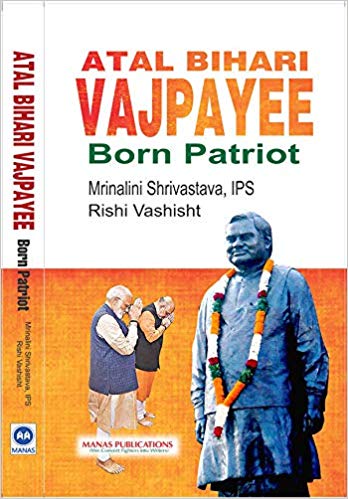Om Publications

Atal Bihari Vajpayee: Born Patriot
Mrinalini Shrivastava and Rishi Vashisht
₹732 ₹795 (8% off)
ISBN 13
9788170495567
Year
2020
Atal Bihari Vajpayee was one of the greatest statesman in India’s recent history. In Parliamentary politics, he conquered his opponents and left no bitter aftertaste. His world was not confined to his own party, but kept the doors open for everyone. After terrorists attacked the Parliament building in 2001, the Congress President Sonia Gandhi called Vajpayee to enquire about his wellbeing. Next day, Vajpayee told the LokSabha, “When the Leader of the Opposition calls the Prime Minister to enquire about the latter’s health, then we know that India’s democracy is in good health.” Pranab Mukherjee used to narrate this anecdote in his speeches to Congress workers to underline the value of Indian politics. One of his finest speeches was the one during the floor test that his 13-day government faced in 1996. He was the first leader to deliver a speech in Hindi at the United Nations. The risk-taking ability of Vajpayee came to the fore when India, with Vajpayee as Prime Minister, conducted its second set of Nuclear Tests in May 1998. All hell broke loose. Led by the United States, global powers slapped economic sanctions on India when liberalisation was yet to complete a decade. “It was the biggest foreign policy crisis in a generation or more. At the end, it was defused. The US and India charted a new course of strategic relationship a few years from then," said former Foreign Secretary Lalitman Singh. Vajpayee declared that India and the US, the world’s largest and oldest democracies, were natural allies. “The Vajpayee government invented the term ‘natural alliance’ which has been adopted by Prime Minister (Manmohan) Singh’s government, and American officials,” foreign affairs expert Stephen P Cohen wrote. As leader of a government that was a coalition of 24 parties, Vajpayee had the unenviable task of giving due importance to allies and at the same time accommodating their views for national development.